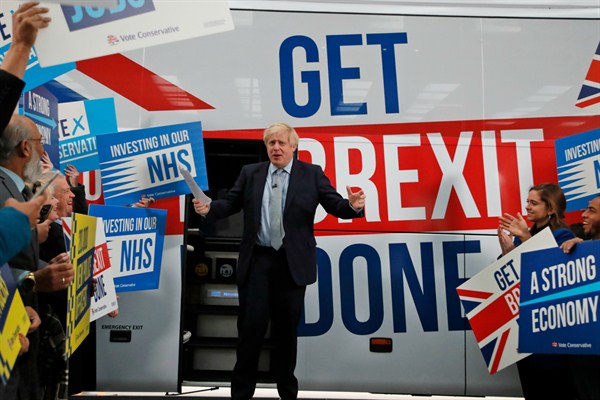Having been thwarted three times in his attempts to call a general election, British Prime Minister Boris Johnson finally succeeded on his fourth try in late October. British voters are now set to elect their third government in four years when they go to the polls on Dec. 12.
With Johnson’s Conservative Party enjoying an average poll lead of 12 percent, all signs currently point to a commanding victory for the Tories. Yet as the previous election in 2017 showed, poll numbers in the early weeks of a campaign should be treated with serious skepticism. Two years ago, Johnson’s predecessor, Theresa May, enjoyed an even greater advantage, with most pundits predicting a Conservative landslide. But after a disastrous campaign, the Tories lost 13 seats in Parliament, squandering their majority.
Although the Conservatives stumbled out of the gate on the campaign trail, few observers expect Johnson to do as badly as May. First, he’s a far more charismatic politician than his predecessor, who was wooden, introverted and awkward. Johnson has also moved to neutralize the main opposition Labour Party’s appeal by pledging to spend more money on public services, given that the Tories’ austerity policies were a liability for them two years ago. Considering that Johnson pushed so hard for this election, it would appear that he feels fairly confident about his chances.

